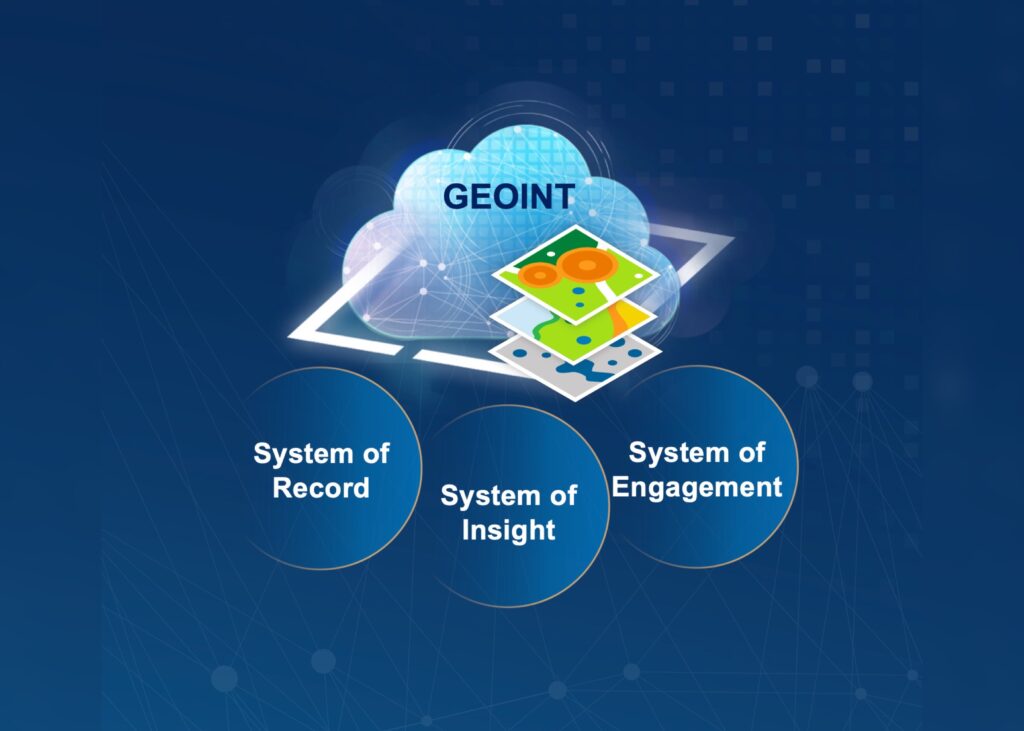Geospatial Intelligence, or GEOINT, is about knowing what is happening at a specific location and time to make decisions. It is foundational to national security activities, especially those of the military. After all, knowing is half the battle.
Since the end of the war in Afghanistan, Canada’s ability to perform GEOINT has largely stalled, if not atrophied, and few are looking at the complex and overarching barriers to progress. Most notably, senior government leaders need to gain an improved understanding of the underpinnings of a GEOINT Enterprise. Success in GEOINT requires the purposeful design of an integrated system of record, system of engagement, and system of insight, built around missions, decision makers, and technology, as outlined below.
A GEOINT system of record relates to the integrity, consistency, reliability, and availability of the geospatial information used to drive decision-making. Such system is essential in the process of sharing information beyond the structural constraints of national security organizations and national governments. In a strong liberal democracy like Canada, where values of transparency and accountability are paramount, a system of record fulfils an important legislative and regulatory need. It acts to ensure compliance, guarantees data integrity and traceability, and forms the basis of data trust and privacy. In the event of legal disputes, a well-documented system of record serves as evidence to substantiate actions taken and data used.
An effective geospatial system of record therefore requires a geospatial-enabled information management architecture that is integrated with the Enterprise IT stack. It should enable cloud, on-premise, and hybrid workflows, and be inclusive and integrative of other applications up to and including C4ISR tools and processes. The developed repositories must be scalable and allow the bi-directional exchange of data that empowers every spatial service to acquire, handle, distribute, and divest data without redundancies and stovepipes.
A GEOINT system of engagement refers to the ability to enhance collaboration, communication, and interaction among stakeholders. Just like there is nothing like a map to galvanize military leaders when planning manoeuvre warfare, GEOINT must be built in a way to accelerate and equalize the knowledge of multiple parties involved in other types of decision making. This engagement comes from having tools that have a common look-and-feel, intuitive interfaces, and effective visuals like maps, but also dashboards, stories, webpages, and other geoanalytics. From a design point of view, it means ensuring that the tools are democratized for use by both specialists and decision makers, implying the need for no-code or low-code solutions, much like API tools for developers to allow customization.
A GEOINT system of insight refers to the ability to make sense of large and complex data from multiple sources at the speed of need. If traditional intelligence is apt in dealing with the known-unknowns of the operational environment, an effective system of insight can reveal the unknown-unknowns. These insights provide an intelligence advantage against our adversaries and are increasingly potent given the advancements in machine-led metacognition. A system of insight is therefore about enabling decision-makers to know what they would otherwise not know exists, if even as a prediction or possibility.
In summary, GEOINT has the potential to be a much greater source of strategic advantage for Canada. Amidst challenges, the design of a Geospatial Enterprise is vital – and more urgent – than the continuous attempts to solve the various problems that plague each individual capabilities that form GEOINT in the first place. A triumvirate of systems – records, engagement, and insights – must be developed and used as the conceptual foundation for building the future of GEOINT in Canada.
